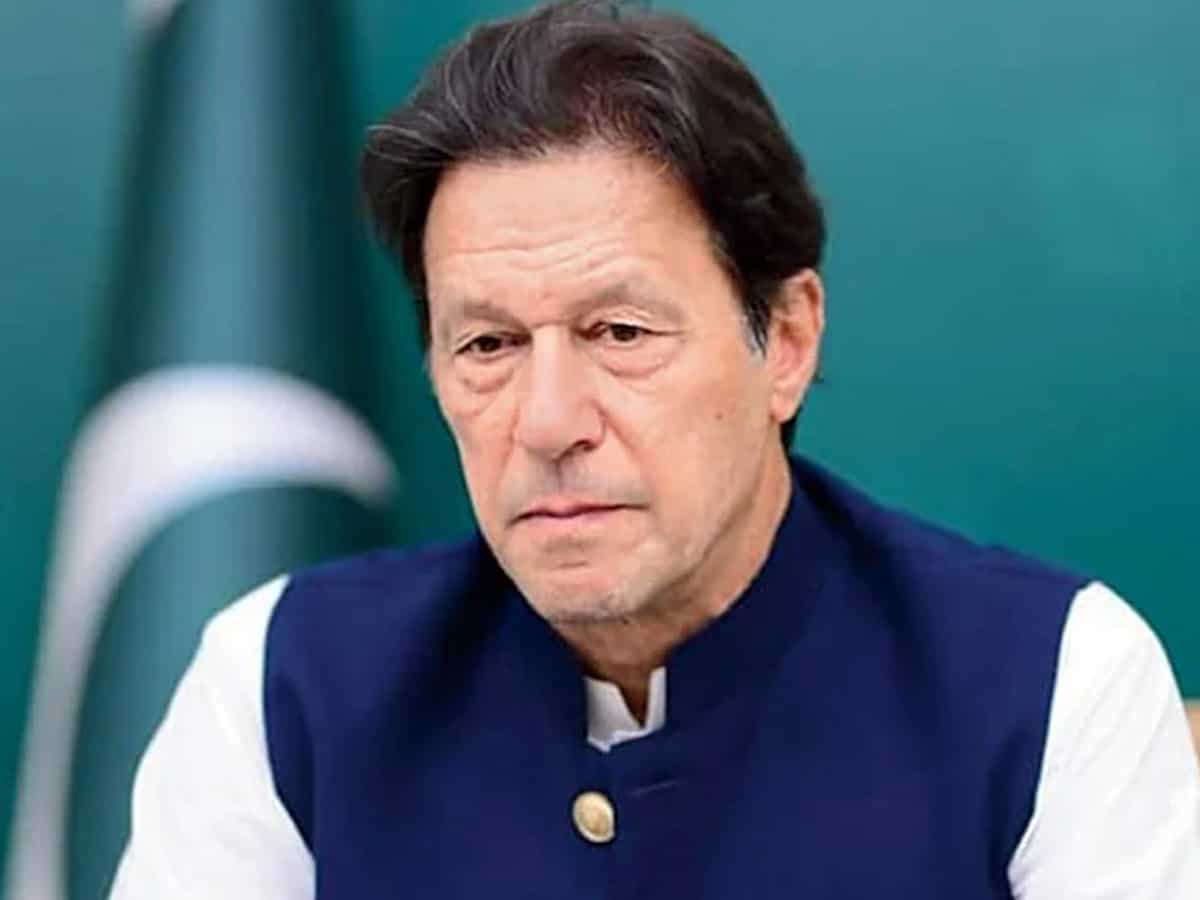
Islamabad: Pakistan’s Supreme Court will resume the crucial hearing on the dismissal of a no-confidence vote against embattled Prime Minister Imran Khan and the dissolution of Parliament by the president on his advice on Thursday, a day after adjourning the proceedings for the fourth time after promising to give a “reasonable order” in the high-profile case.
The apex court on Wednesday sought the minutes of the National Security Council meeting to know more about the alleged “foreign conspiracy” as it delayed its verdict on whether Prime Minister Khan had violated the Constitution by dissolving Parliament rather than face a no-confidence vote.
National Assembly Deputy Speaker Qasim Khan Suri on Sunday ruled that the no-confidence motion was linked with the “foreign conspiracy” to topple the government and hence was not maintainable. Minutes later, President Arif Alvi dissolved the National Assembly on the advice of Prime Minister Khan.
During the third day of the hearing on Wednesday, Babar Awan appeared for Pakistan Tehreek-e-Insaf (PTI) party and Ali Zafar represented President Alvi.
Chief Justice Umar Ata Bandial asked Awan about the minutes of the recent meeting of the National Security Council which had discussed a letter purportedly showing evidence of the “foreign conspiracy” to oust the PTI-led government.
During the hearing on Wednesday, the chief justice repeatedly reminded the lawyers to conclude their arguments at the earliest to let the bench issue an order.
However, since the process was not completed, the court adjourned the case till Thursday while announcing to resume the hearing at 9:30am (local time).
The bench assured to come up with a verdict after hearing lawyers representing the government and the opposition.
The outcome will not only decide the fate of no-confidence but also the dissolution of the National Assembly and the upcoming elections.
If Khan gets a favourable ruling, elections will take place within 90 days. If the court rules against the deputy speaker, Parliament will reconvene and hold the no-confidence vote against Khan, experts said.
The prevailing crisis began to unfold after the opposition submitted a no-confidence motion against the Prime Minister on March 8. The voting was scheduled to be held on April 3 but the deputy speaker rejected the motion, saying it was part of a conspiracy to topple an elected government.
Chief Justice Bandial has said that all orders and actions initiated by the prime minister and the president regarding the dissolution of the National Assembly will be subject to the court’s order.
He said on Monday the court would issue a “reasonable order” on the issue that has led to a political and constitutional crisis in the country.
President Alvi, the Supreme Court Bar Association and all political parties have been made respondents in the case.
The decision of the court would determine the legality of the presidential order to dissolve the National Assembly.
However, the Opposition parties rejected both the ruling of the deputy speaker and the dissolution of parliament, and not only challenged it in court but also fought tooth and nail outside the Supreme Court.
Pakistan Muslim League-Nawaz (PML-N) leader Shehbaz Sharif at a press conference accused Prime Minister Khan of violating the Constitution and imposing a civil-martial law in the country.
Meanwhile, Pakistan Muslim League-Nawaz Vice-President Maryam Nawaz has accused Khan of using the NSC meeting to save his “incompetent” government and to stay in power for a few more days.
She demanded that the security agencies who were part of the committee clarify their position on the alleged threat.
